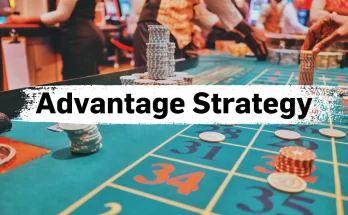Knowing more about gambling addiction is crucial to getting the right help for your particular case. There are numerous treatment options, from professional counseling and group meetings with other people who are experiencing the same problem to more rigorous programs that may include gambling rehab. The first step to overcome gambling addiction is to identify the triggers that lead you to lose control over your impulses and start changing your behavior. Ultimately, abstinence will be the only way to prevent relapse.
There are numerous treatments for gambling addiction, including medications that may reduce the urge to gamble. Antidepressants and anti-seizure medication have shown promise in reducing the excitement and urge to gamble. In addition, a 12-step program called Gamblers’ Anonymous can help you cope with the problem by connecting you with others who have overcome the same problems. The support from such groups can be invaluable in your recovery. Likewise, therapy can help you understand the extent of your problem, devise a treatment plan, and provide ongoing support.
Problem gambling is a serious disorder and can lead to negative social, physical, and psychological consequences. It is a serious condition that affects both individuals and their families. Gambling addiction is classified as an impulse-control disorder. While problem gambling can be harmful to a person’s psychological well-being, it is also damaging to their physical health. Some problem gamblers experience gastrointestinal disorders and migraine. Others develop despondency and even depression. They may even attempt suicide.
Gambling addiction begins when a person starts to chase a dopamine release and no longer enjoys the activity. This can lead to a vicious cycle that leads to increased craving and weakened control over impulses. A gambling addiction affects a person’s psychological, social, and professional life. It is best to seek treatment for gambling addiction as soon as possible. If you or a loved one suffers from gambling addiction, it is important to find the right treatment program for your particular situation.
People who suffer from gambling addiction often find themselves in the midst of a gambling environment. They seek the adrenaline rush it provides, seek out social interaction, or simply to solve a financial problem. These people tend to make choices that affect those around them. In particular, their spouses and children are often subject to the effects of their gambler’s behavior. Ultimately, a gambling addiction must be treated as it leads to many consequences.
Gambling addiction is often triggered by stressful situations or emotional events in a person’s life. It can be further complicated by physical or mental health conditions or environmental factors. Regardless of the trigger, a person with gambling addiction will need support to recover from it. The recovery process can also include making sure you surround yourself with friends who are not gamblers. This will help keep the urge to gamble out of your mind. Moreover, it can help you make better lifestyle choices.
The treatment for gambling addiction is based on the cognitive-behavioral therapy approach. This therapy teaches problem gamblers how to identify the triggers and consciously change their behavior. Cognitive-behavioral therapy teaches people how to catch and challenge negative thoughts, thereby minimizing the urge to gamble. This approach also includes behavioral therapy, which teaches people how to deal with negative beliefs and urges and overcome the difficulties caused by gambling.




